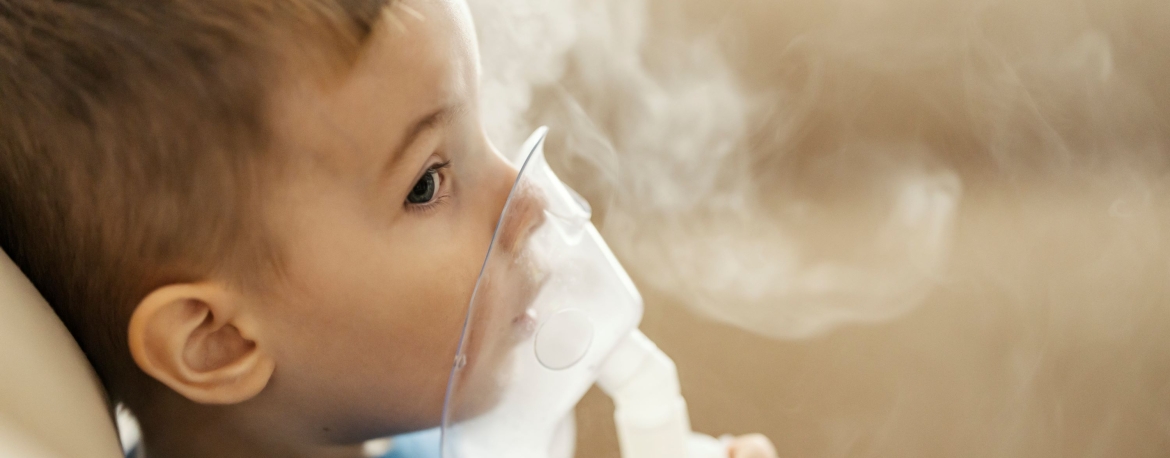Las enfermedades respiratorias agudas son la causa más frecuente de consulta en los primeros años de la infancia. Tienen una gran importancia por su fácil trasmisión y por su afectación clínica en lactantes y menores de corta edad.
La enfermedad por VRS e influenza puede ser severa en niños menores de 2 años. La presencia de fatiga o quejido en niños menores de una año debe alertar sobre enfermedad grave.
Para la atención de Infecciones Respiratorias Agudas se recomienda:
- Adoptar medidas prevención y el control de los casos graves (consulta oportuna)
- Asegurar una alta cobertura de vacunación en grupos de alto riesgo (vacunación de niños entre 6 meses y 5 años y todos aquellos con factores de riesgo)
- Manejo clínico adecuado, que se ofrece en domicilio, emergencia e internaciòn
1. MEDIDAS HIGIÉNICAS
- Lavarse las manos antes del contacto con lactantes y menores, después de toser o estornudar.
- Toser o estornudar sobre un pañuelo desechable, o sobre el hueco del codo.
- Desechar el pañuelo usado en un lugar apropiado.
- Usar alcohol en gel frecuentemente.
- Limpiar a fondo los juguetes de uso habitual, y evitar utilizar los que han sido tocados por otros menores enfermos.
- Lavar bien los biberones.
- Ventilar los ambientes a diario.
2. EVITAR ENTORNOS CONTAGIOSOS
- Evitar el contacto con personas que tengan enfermedades respiratorias.
- Evitar Guarderías, aglomeraciones públicas, fiestas infantiles, entornos cerrados.
- Exposición al humo de tabaco.
- Mantenerse alejado del bebé si se tiene síntomas respiratorios como resfrío, tos o fiebre, o bien usar mascarilla.
- Se recomienda que niños con cursando infecciones respiratorias agudas no concurran a gurderias o escuelas, así como también evitar que contagien a personas con riesgo de padecer enfermedades graves (mayor 65 años, personas con patología cardiaca, renal o pulmonar crónica, inmunosuprimidos)
- Evitar la concurrencia a jardín de infantes de hermanos en etapa pre-escolar en el período de máxima circulación viral.
3. VACUNAS Y TRATAMIENTOS
TOS CONVULSA
- Para prevenir la Tos convulsa existe una vacuna que se administra de forma repetida desde los 2 meses de vida y hasta los 12 años de edad.
- Las embarazadas luego de cumplidas las 28 semanas de embarazo deben recibir la vacuna que protege contra la tos convulsa (DPaT incluida en la triple bacteriana con pertussis acelular).
VIRUS RESPIRATORIO SINCICIAL (VRS)
Se dispone de medicación (anticuerpos monoclonales humanizados) para proteger del VRS, que está indicada solo para lactantes de alto riesgo (prematuros severos, cardiopatías congénitas complejas, broncodisplasia pulmonar) a fin de disminuir la posibilidad de enfermar de forma grave y logra aumentar las defensas contra el virus.
VIRUS DE LA GRIPE
- Se recomienda vacunar a partir de los 6 meses de edad hasta los 5 años.
- Se recomienda vacunar a los niños, adolescentes y adultos convivientes o cuidadores de lactantes menores de 6 meses que, por motivos de su corta edad, no pueden recibir la vacuna de la gripe.
- Todas las embarazadas, independientemente de su edad gestacional.
- Todas las puérperas hasta los 6 meses del parto.
VIRUS SARS-COV-2
La Vacunación contra Covid-19 se recomienda tanto a embarazadas en cualquier momento de la gestación como madres en etapa de lactancia. También se recomienda la vacunación de los mayores de 5 años y adultos que conviven con niños pequeños, así como sus cuidadores.

